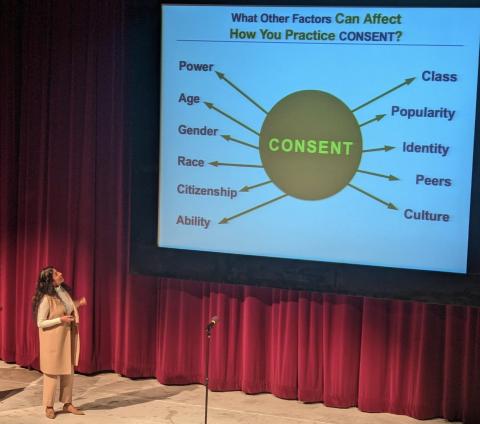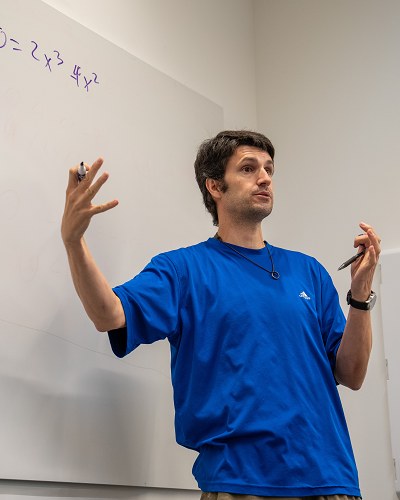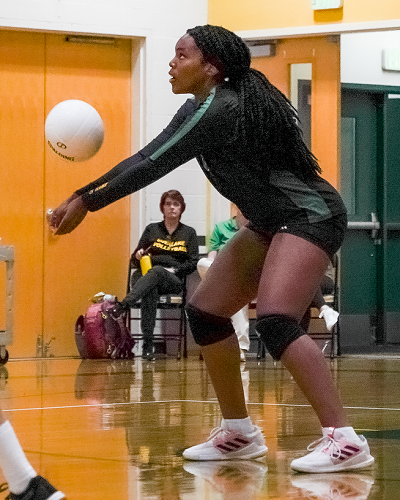Expert in Residence

This week looked a little different than some as Overlake hosted an Expert in Residence for three days on campus. Natasha Singh, a Sexual Literacy Educator, worked with all members of the Overlake community to learn about what consent and sexual ethics mean to them and how everyone has a role to play in co-creating a school culture around consent.
“My hope is that everyone will recognize that sexual ethics are really an important part of one’s life and developing sexual ethics and developing critical thinking skills around consent and being more aware of how we practice or don’t practice consent are really vital skills to have,” Singh says.
During her three-day visit to Overlake’s campus, Singh had the chance to speak to the Upper School, Middle School, eighth grade, sixth grade, senior class, campus adults, and parents/guardians all at different times. Her approach to community change is a holistic approach as she has learned that to affect change and well-being around a topic, all members of a community need to be having similar conversations with shared language. By making these conversations more commonplace she hopes to help reduce conversational anxiety around topics like sexual boundaries which will contribute to a better sense of well-being on campus.
Most of Singh’s message centered around co-creating a culture of consent. She emphasized that the language used is often that consent is seen as something ‘to get’ rather than create together. When speaking to the senior class, she challenged students to spend time considering their values and ethics regarding sex and intimate relationships, especially as they prepare to leave Overlake and encounter people who come from different backgrounds than they do. “I realized that many of them had not given this arena much thought. But relationships and intimacy are an important part of people’s lives and merit just as much attention and time,” she says.
When she talked with younger students, Singh talked about consent in terms of practicing and understanding bodily autonomy and why it matters. She used the example of ‘pantsing’ a classmate because it seems ‘funny’ is instead violating a classmate’s ability to consent. She also called out practices like ‘shipping’ or pressuring each other to reveal their crushes when they don’t want to is a way of violating each other’s boundaries. During the Middle School assembly, she cautioned them when she said, “be careful what you call ‘funny’ or ‘just a joke’.”
Her takeaways and hopes for students are that they step up and take a leadership role in these conversations on their campus and that everyone has a role to play in creating a safe and supportive space for young people. She recognizes that there’s a big difference between having an outside speaker come and share a message rather than the conversations happening within the community. One question she always came back to was, “what kind of culture are students championing?”
To find out more information about Natasha’s work, visit her website.



